What’s the Best Web Hosting for Personal Websites?
Table of Contents
Introduction
Establishing a personal website serves a variety of purposes, including displaying professional work, creating an online portfolio, starting a blog, or building a digital CV. It acts as your online business card across the web. While understanding how to build a personal website is essential, knowing what it is and the best hosting services available is equally important. This guide explores personal website categories, their uses, and the top hosting solutions. Although setting up your own site may seem daunting, it’s actually affordable and provides greater control over your content. Fortunately, learning to host your own site is simple and doesn’t require technical expertise. Read on to discover how to sign up with a web hosting company in just a few minutes.

What Is a Personal Website?
A personal website is a custom-built online space designed to showcase your identity, work, and ideas. Unlike social media platforms where content is often shared with limitations, a personal website allows you full creative control over what you present and how you present it. Whether it’s a simple digital resume, a dynamic portfolio, or a complex blog, this platform can be tailored to fit your personal or professional needs.
What Is a Personal Website For?
A personal website serves multiple purposes depending on your goals. It can be used to highlight your professional achievements, share personal insights, or establish a unique personal brand. From displaying portfolios and writing blogs to running an online store, a personal website offers a flexible space for self-expression and business growth. It’s an essential tool for anyone looking to control their online presence and pursue varied personal or professional objectives.
- Professional Portfolios: Showcase your skills, projects, and accomplishments to attract potential clients or employers.
- Blogging: Share your expertise, thoughts, and hobbies with a wider audience, establishing yourself as a thought leader.
- Personal Branding: Build a strong online presence that highlights your unique qualities and professional achievements.
- Resume or CV: Present your qualifications and career highlights in a polished, accessible format.
- Online Store: Launch an e-commerce platform to sell products or services directly from your site.
Examples of Personal Websites:
- RaviShankar.com: A renowned sitar player and composer, Ravi Shankar’s website highlights his music, biography, and contributions to classical Indian music.
- ShashiTharoor.in: The official site of Shashi Tharoor, an acclaimed author and politician. It features his writings, speeches, and updates on his political and literary activities.
- ChetanBhagat.com: The official site of Chetan Bhagat, a bestselling Indian author. The website includes his books, articles, and information about his speaking engagements and media appearances.
- PewDiePie.com: While PewDiePie, or Felix Kjellberg, is a Swedish YouTuber, his website attracts a global audience, including many in Asia, with content updates, merchandise, and his channel’s success stories.
- JackMa.com: Jack Ma’s personal site offers insights into his journey as the founder of Alibaba Group, including his speeches, writings, and philanthropic efforts.
Types of Personal Websites
Blog
Purpose: Ideal for sharing your interests, expertise, or hobbies with a broader audience. Whether you’re passionate about travel, technology, or food, a blog allows you to create and share content consistently.
Best Hosting: opt for WordPress hosting, known for its robust blogging features, speed, and ease of use. It’s optimized for content management and regular updates.
Portfolio Website
Purpose: Perfect for freelancers, creatives, and professionals to showcase their work and achievements. A portfolio site demonstrates your skills and attracts potential clients or employers.
Best Hosting: Choose a provider that offers design flexibility and supports high-quality images and galleries. WordPress, Wix, or Squarespace are excellent choices for their customization options and visual capabilities.
Resume or CV Website
Purpose: Presents your professional experience in a dynamic and visually appealing format, ideal for job seekers looking to stand out.
Best Hosting: Look for platforms with user-friendly templates and fast load times. Wix and other drag-and-drop builders are great for creating a professional and engaging CV site.
Personal Storefront
Purpose: Enables you to sell products or services online, whether it’s art, digital downloads, or consulting services. An e-commerce-enabled site can help boost your sales and manage transactions effectively.
Best Hosting: Select a hosting provider that supports e-commerce tools like Woo Commerce and offers strong security features to handle online transactions safely.
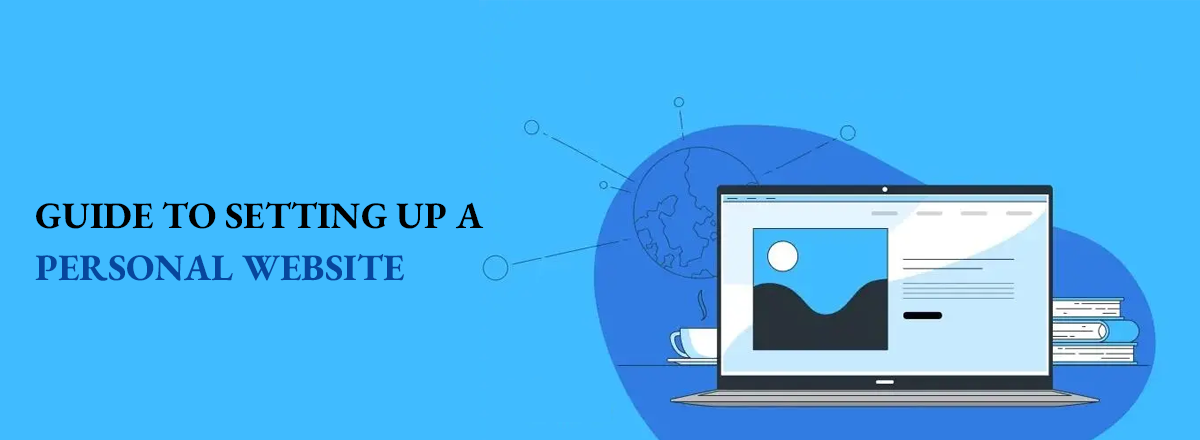
Guide to Setting Up a Personal Website
Step 1: Choose a Domain Name and Hosting Provider
- Domain Name: Select a memorable, relevant domain name that reflects your personal brand. Ensure it is easy to spell and remember.
- Examples: CodeWithKiran.com , ArjunWrites.in
- Hosting Provider: Choose a hosting provider that suits your needs and includes essential features like storage, bandwidth, and support.
- Popular Providers: Bluehost, DreamHost, Wix, Squarespace
Tip 1: Opt for a hosting plan that includes a free domain name and SSL certificate.
Tip 2: For existing sites, select hosts offering free migration services.
Step 2: Pick a Content Management System (CMS)
- WordPress: Ideal for flexibility and control, but requires separate hosting.
- All-in-One Website Builders: Platforms like Wix, Squarespace, and Shopify offer integrated solutions, including hosting.
Tip 1: Choose WordPress for extensive customization.
Tip 2: Opt for website builders for an all-in-one solution.
Step 3: Set Up Your Domain and Hosting
- Domain Registration: If you don’t already own a domain, register one through domain registrars or your hosting provider.
- Options: Namecheap, Domain.com, Google Domains
- Connect Domain to Hosting: Update your domain’s DNS settings to link it with your hosting provider.
Tips : Register your domain through your hosting provider to simplify the setup process.
Step 4: Design and Develop Your Website
- Design: Choose and customize a theme or template that fits your style. Ensure your site is easy to navigate and mobile-friendly.
- Content: Add relevant content, such as portfolio pieces or blog posts.
Tips : Use templates and themes that align with your brand’s look and feel.
Step 5: Optimize and Launch
- SEO: Implement basic SEO techniques, including meta descriptions, alt tags for images, and relevant keywords.
- Launch: Review your site, make any necessary adjustments, and hit publish to go live.
Tips : Ensure all SEO elements are in place before launching to improve visibility in search engines.
Types of Hosting Explained
Choosing the right hosting plan is crucial for your website’s performance and growth. Here’s a breakdown of the main types of hosting to help you make an informed decision:
- Web Hosting
- WordPress Hosting
- VPS Hosting
- Cloud Hosting
Web hosting is the most common type of hosting, providing space on a server to store your site’s files. It’s ideal for most personal websites, such as blogs or portfolios.
Best For: Personal websites with standard traffic levels and storage needs.
Specifically optimized for WordPress sites, this hosting type enhances performance and includes features tailored for WordPress users, such as one-click installations and automatic updates.
Best For: Bloggers and users who run their sites on WordPress and want an optimized experience.
Virtual Private Server (VPS) hosting offers dedicated resources and a higher level of control compared to standard web hosting. It’s suitable for more complex websites or those with significant traffic.
Best For: Personal stores or websites with higher traffic or specific resource needs.
Cloud hosting provides scalability by distributing your website’s data across multiple servers. This type of hosting is flexible and can accommodate growing personal brands or businesses.
Best For: Growing sites or businesses that need high scalability and flexibility.
Security Considerations
- SSL Certificate: Secures your site’s data and protects customer information by encrypting data transferred between your site and users.
- Regular Backups: Safeguard your data with frequent backups to prevent loss in case of a technical issue or security breach.
- Privacy Protection: Keeps your domain registration details private, preventing them from being publicly visible.
Regardless of which hosting option you choose, ensuring your website’s security is crucial. Here are the essential security features to look for:
Top Personal Website Hosting Providers
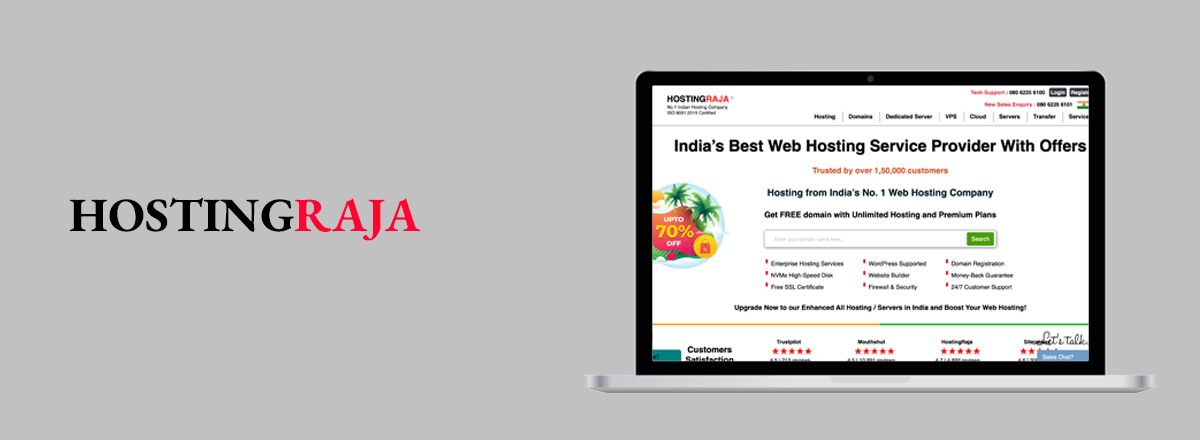
HostingRaja stands out for its impressive reliability and performance at a competitive price. Ideal for those who prioritize high uptime and speed without breaking the bank.
Features: Free SSL, daily backups, global data centers, 1-click WordPress installation
Uptime: 99.9%
Speed: 290ms
Best for: Reliable and high-performance hosting at competitive prices
Current deal: Up to 70% OFF + Free SSL!
Support: High Priority 24/7/365 call, chat, mail & bot support
| Pros | Cons |
|---|---|
|
|
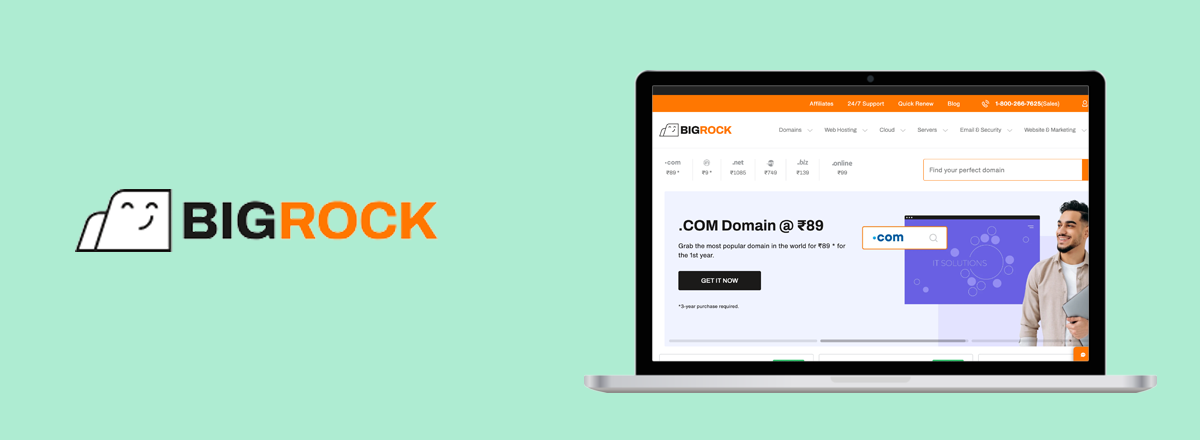
BigRock is a solid choice for users looking for budget-friendly and scalable hosting solutions. It offers good value with a free domain and basic features, though customer support could be improved.
Features: Free domain, SSL, website builder, email accounts
Uptime: 99.95%
Speed: 375ms
Best for: Budget-conscious users needing scalable options
Current deal: Up to 80% OFF + Free Domain!
Support: Call 9am -8pm, chat – anytime
| Pros | Cons |
|---|---|
|
|
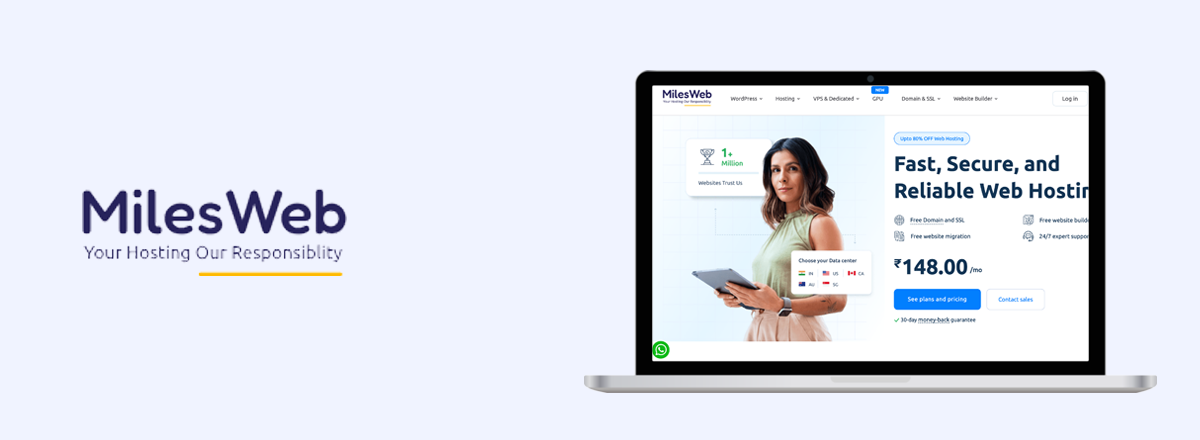
MilesWeb offers robust hosting solutions with excellent bandwidth and security features. Ideal for those needing comprehensive hosting capabilities, though renewal rates can be higher.
Features: Free SSL, daily backups, unlimited bandwidth, cPanel
Uptime: 99.96%
Speed: 290ms
Best for: Comprehensive hosting with unlimited bandwidth and strong security
Current deal:Up to 75% OFF + Free SSL!
Support: email or live chat 24/7
| Pros | Cons |
|---|---|
|
|
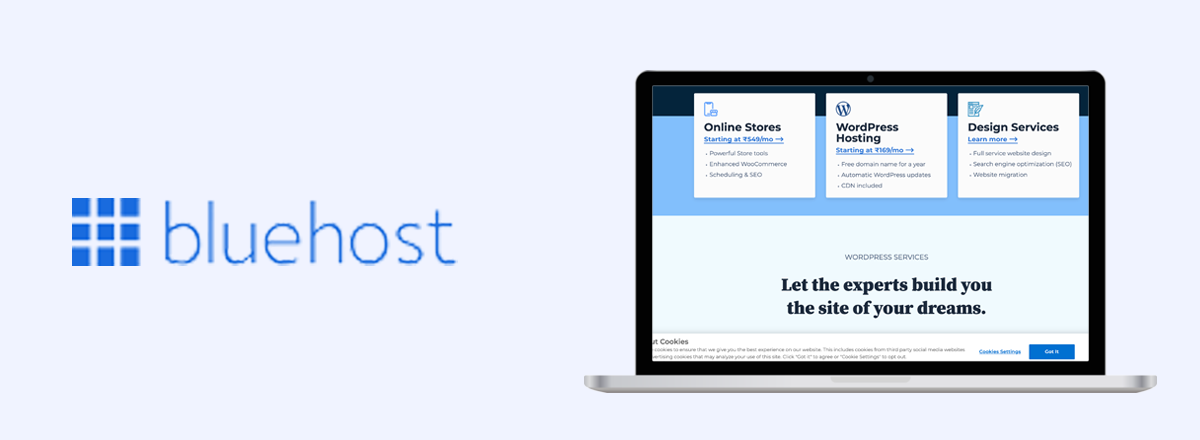
Bluehost is a top pick for beginners setting up WordPress sites due to its user-friendly interface and integrated tools. Limited data center locations and higher renewal costs may be downsides.
Features: Automatic WordPress setup, free domain, SSL, website builder
Uptime: 99.99%
Speed: 361ms
Best for: Beginners building WordPress sites
Current deal: Up to 75% OFF!
Support: 24/7 chat and phone support
| Pros | Cons |
|---|---|
|
|
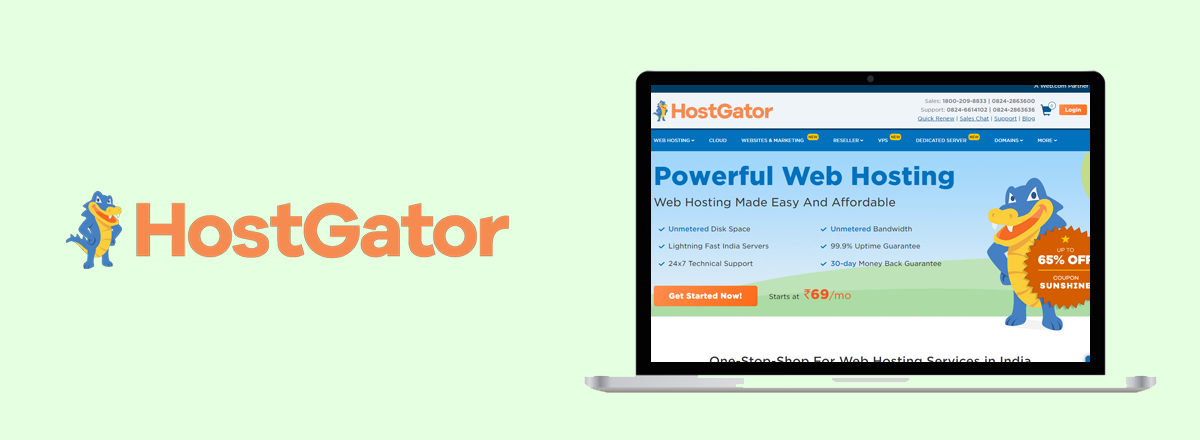
HostGator offers a flexible range of hosting options suited for various needs. While it provides reliable performance and a variety of features, users should be cautious of high renewal rates and possible storage limitations.
Features: Free SSL, unlimited email accounts, website builder, cPanel
Uptime: 99.98%
Speed: 302ms
Best for: Versatile hosting with a range of plans
Current deal: Up to 70% OFF + Free Migration!
Support: 24/7 support
| Pros | Cons |
|---|---|
|
|
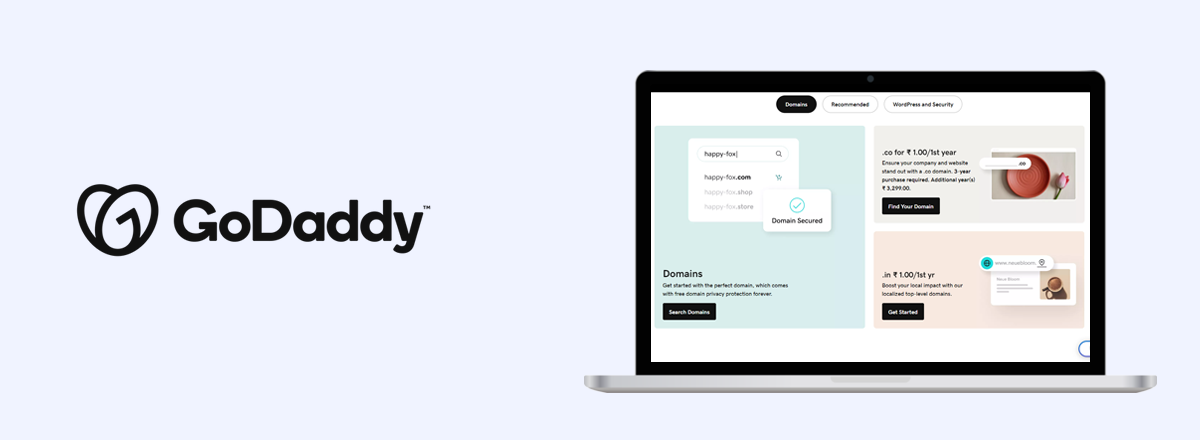
GoDaddy provides a one-stop solution for both domain registration and hosting. It excels in integration and reliability but may have higher renewal costs and additional fees for some features.
Features: Free domain, SSL, website builder, email accounts
Uptime: 99.97%
Speed: 345ms
Best for: Users needing both domain registration and hosting
Current deal: Up to 65% OFF + Free Domain!
Support: call 9:00 am – 7:00 pm, chat 24/7
| Pros | Cons |
|---|---|
|
|
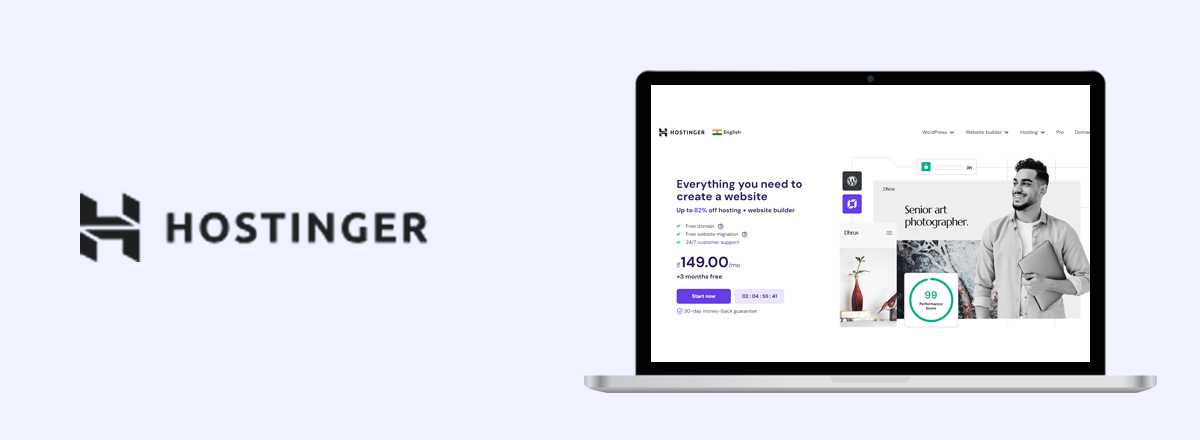
Hostinger is a leading budget-friendly option with a strong track record for performance. Despite its excellent value, the cheapest plan’s limitations and long-term commitment may be drawbacks.
Features: Free SSL, automatic backups, LiteSpeed web server, cPanel
Uptime: 100%
Speed: 511ms
Best for: Budget-conscious personal projects needing reliable performance
Current deal: Up to 78% OFF + 3 months free!
Support: 24/7 support
| Pros | Cons |
|---|---|
|
|
Comparison of Popular Hosting Providers
| Provider | HostingRaja | BigRock | MilesWeb | Bluehost | GoDaddy | Hostinger | HostGator |
|---|---|---|---|---|---|---|---|
| Brand | |||||||
| Ease of Use | User-friendly, simple setup | Easy setup | Intuitive control panel | Very easy for beginners | User-friendly with various options | Easy-to-use control panel | Simple interface, great for beginners |
| Security Features | Free SSL, regular backups, DDoS protection | Free SSL, security features | Free SSL, daily backups, malware protection | Free SSL, daily backups | Free SSL, additional security options | Free SSL, daily backups, advanced security features | Free SSL, security add-ons |
| Speed | Fast with reliable uptime | Good performance | Reliable speed | Fast with solid uptime | Reliable speed | Fast and reliable | Good performance |
| Support | High Priority 24/7/365 call, chat, mail & bot support | Call 9am -8pm, chat – anytime | email or live chat 24/7 | 24/7 chat and phone support | call 9:00 am – 7:00 pm, chat 24/7 | 24/7 support | 24/7 support |
Cost of Hosting a Personal Website
The cost of hosting a personal website typically ranges from ₹80 to ₹800-2,400 per month. Here’s a breakdown:
- Hosting Cost: Affordable plans, such as HostingRaja’s ₹200/month, are suitable for simple sites.
- Domain Name: Typically costs ₹600-1,500/year, though many hosts offer a free domain for the first year.
- Website Design: WordPress offers free themes and plugins. Some hosts provide website builders.
- Scalability: Consider potential future costs if you need to upgrade to VPS, Cloud, or dedicated hosting later.
- Extra Features: Additional security or tools can increase the overall cost.
Launching a personal website has become relatively simple and cheap, costing as low as ₹200 per month for the hosting plans and between ₹600 – 800 per year for the domain names. And that is when the right hosting provider comes in; he or she can have a personal site that markets your brand, portfolio site, or even an online business. We at HostingRaja offer resolutions with a reasonable price tag, Highly reliable services packed with all essential features which will help in turning your vision into reality. This is the best time to start building your site for the digital world—take advantage of our great hosting plans and current offers to make your site safe, fast and effective for your needs.
-

KINGSTON AJITH
Senior Content Writer HostingRajaA seasoned Senior Content Writer with over 5 years of experience in the tech industry, specializing in web hosting. Passionate about creating unique, high-quality content for articles, blogs, and web pages. As a dedicated learner, continually improving writing skills and overseeing all online content and communications to ensure quality and consistency.
